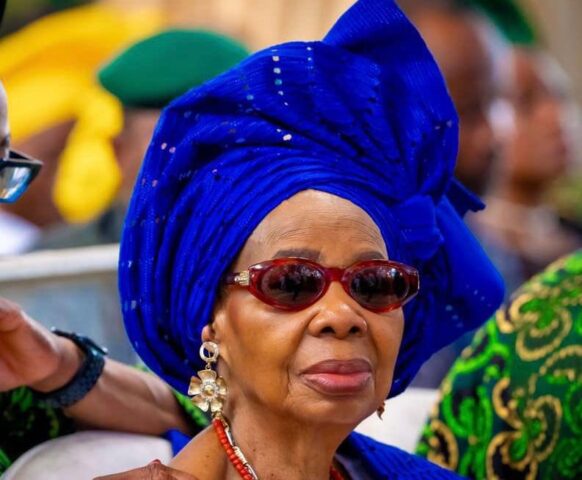President Bola Ahmed Tinubu’s government has allocated N4 billion for conditional cash transfers aimed at assisting vulnerable households in Nigeria.
During the unveiling of the 2025 Nigeria Humanitarian Needs and Response Plan at the United Nations House in Abuja on Thursday, the Minister of Humanitarian Affairs and Poverty Reduction, Prof Nentawe Yilwada, announced these initiatives designed to tackle the escalating humanitarian crisis in the country.
This initiative is anticipated to benefit at least 10 million displaced households, with a focus on the most at-risk segments of the population.
The cash transfer program is scheduled to commence in February and will run through April, with the objective of addressing the urgent needs of families impacted by displacement, particularly in the Northeast region.
Furthermore, the government has sanctioned N2 billion in interest-free loans for farmers, particularly those residing in rural areas, to enhance food production and promote self-sufficiency.
“We are prioritizing women, especially widows, pregnant women, and those with disabilities. The experiences of displaced women, particularly those facing pregnancy or disability, are especially challenging. We understand these vulnerabilities and will continue to support those who are most in need.
“The President has approved the Ministry’s plan to begin paying conditional cash transfers to 10 million displaced households between February and April. This initiative aims to support those most in need, particularly vulnerable families affected by displacement,” he added.
“Additionally, the government has allocated N2bn to provide interest-free loans to farmers in rural communities. These loans will range from N300,000 to N400,000 per household, helping farmers access necessary resources and linking them to market opportunities.
“Furthermore, a N4bn provision has been approved to support vulnerable groups through cash transfers, targeting families affected by natural disasters and other crises. These interventions are part of the government’s broader strategy to alleviate poverty and provide relief to those in urgent need,” the minister stated.
He further emphasised the government’s commitment to addressing the needs of internally displaced persons, returnees, and affected communities across Nigeria.
The HNRP, he noted, was developed through extensive consultations and is designed to address the humanitarian challenges in Borno, Adamawa, Yobe, and other conflict-affected regions.
“We are combining the efforts of humanitarian, developmental, and peacebuilding platforms to ensure long-term resilience and sustainable solutions for these communities,” he added.
Emphasizing the gender dynamics inherent in these interventions, Yilwada highlighted the emphasis placed on households led by women, who frequently encounter significant obstacles such as gender-based violence, child marriage, and food insecurity.
Households led by women suffer from higher levels of hunger compared to their male counterparts, which will be a primary focus of our initiatives. Ensuring these women have access to food, water, healthcare, and safety remains one of our foremost objectives, he stated.
Mr. Trond Jensen, Head of the UN Office for the Coordination of Humanitarian Affairs, provided a comprehensive overview of the situation, indicating that in 2025, 7.8 million individuals, including women, men, and children in Borno, Adamawa, and Yobe states, will require humanitarian assistance.




